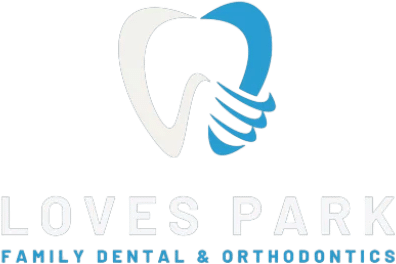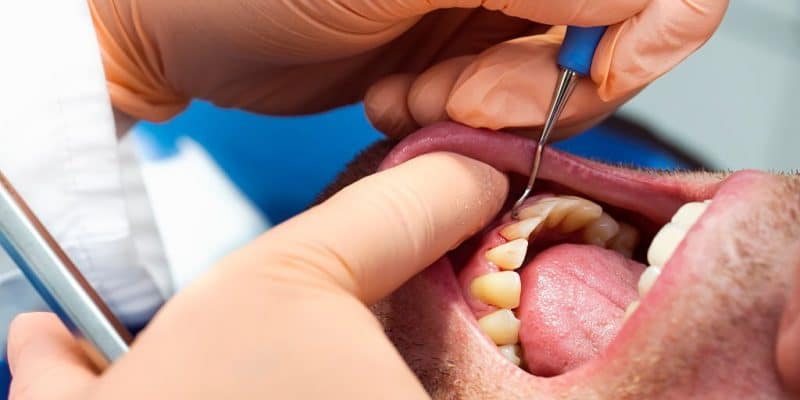Periodontal disease, also known as gum disease, is a common oral health condition that affects the tissues and bones supporting the teeth. Left untreated can lead to tooth loss and other serious health problems.
Periodontal disease can also cause gums loosening, a loose gum flap between teeth. The good news is that, in any case, periodontal disease affects the teeth, which are saved with proper treatment and oral hygiene.
Beware Of Periodontal Disease
Periodontal disease is caused by plaque buildup, a sticky film of bacteria that forms on the teeth and gums. Plaque can harden into tartar, which a professional cleaning can only remove.
If plaque and tartar are not removed, they can cause inflammation and infection in the gums, leading to periodontal disease. It is not that different from any teeth disease.
Many of us wonder, is gum disease curable? If caught in the early stages, it is. The significant reasons for gum disease are chewing tobacco, diabetes, pregnancy, and genetics.
You must not take it lightly and keep delaying your dental appointments. It is always better to be safe than sorry. If the periodontal disease goes to an advanced stage, it cannot be treated without surgery.
But what are the different stages of this dental procedure? Let’s check it out in the following sections of our blog.
Stages Of Periodontal Disease
Stage 1: The Initial Stages
The early stage of periodontal disease is called gingivitis, characterized by swollen, red, and bleeding gums. If gingivitis is not treated, it can progress to the more advanced stage of periodontal disease, called periodontitis.
In this stage, the gums and bone around the teeth become infected and can start to break down, leading to tooth loss. Click here for early-stage gum disease pictures.
Stage 2: Severity Of The Spread
Treatment for periodontal disease depends on the disease’s stage and the infection’s severity. In the early stages of gingivitis, professional cleaning and improved oral hygiene can often reverse the effects of the disease.
This may include brushing daily, flossing, and mouthwash to remove bacteria and plaque. You can also take help from a professional dentist in Illinois.
Stage 3: Stages Of Cleaning
In more advanced cases of periodontitis, a deeper cleaning called scaling and root planing may be necessary to remove the infected plaque and tartar from the teeth and gums. A dentist or periodontist usually does this procedure, which may need to be repeated several times to clean the teeth and gums thoroughly.
It is preferable to get the deep cleaning done twice a year for the best results, and doing so can also save a lot of oral problems. Following these stages, we can treat the most severe periodontal disease.
When Do You Need Surgical Treatment?
In some cases, periodontal disease can cause significant damage to the gums and supporting bone, making it difficult to save the affected teeth. Most of us wonder if surgical treatment can reverse gum disease.
However, the dentist may recommend surgical treatment to repair the damage and prevent further tooth loss in these cases. This may include gum grafts, bone grafts, or pocket reduction surgery. Some medicines may be expensive, but they can help bring back the lost smile on your face.
Besides, the best toothpaste for periodontal disease contains fluoride to help prevent tooth decay and has been approved by the American Dental Association (ADA). Click here for tooth-bone loss pictures.
It is important to remember that good oral hygiene is the key to preventing and treating it. This includes daily brushing and flossing, as well as regular visits to the dentist for professional cleanings and check-ups.
By taking care of your teeth and gums, you can keep your mouth healthy and save your teeth from its effects of it. To learn more about periodontal disease, you can take assistance from any periodontist in Illinois. Click here for bone loss in teeth pictures.
Here Are A Few Steps To Save Teeth Affected By Periodontal Disease.
Step 1: The first step in treating periodontal disease is removing the plaque and bacteria accumulated on the teeth. This is usually done through scaling and root planning.
Next, the dentist or dental hygienist uses specialized instruments to clean the teeth and smooth out any rough spots on the roots. This helps to remove the bacteria and allows the gums to heal.
Step 2: After scaling and root planing, it is essential to maintain good oral hygiene to prevent plaque and bacteria buildup. This includes brushing, flossing regularly, and using mouthwash to kill any remaining bacteria.
It may also be necessary to use special mouthwashes or toothpaste to help control the bacteria that cause periodontal disease.
Step 3: In some cases, more advanced treatments may be needed to save teeth severely affected by periodontal disease. These treatments may include using antibiotics to kill the bacteria that cause the infection or surgery.
This allows the dentist to remove infected tissue and repair damaged gums. In severe cases, removing the affected teeth may be necessary to prevent the infection’s spread. This is how periodontal disease is curable.
Now You Know!
Overall, the success of treatment for periodontal disease depends on several factors. The factors are:
- The severity of the infection.
- The health of the teeth and gums.
- The individual’s commitment to maintaining good oral hygiene.
However, with proper treatment and care, it is often possible to save teeth affected by it and prevent further damage to the gums and other oral structures. A dentist can diagnose the cause of your loose teeth and recommend the appropriate treatment, and that’s how to fix loose teeth from gum disease. All the best!
Let The Experts Handle Your Periodontal Teeth
Things can get complex when you have compromising oral health, especially one affected by it. Such instances call for help from professionals of Loves Park Family Dental and Orthodontics, who can get you the best treatment without any delay. So wait no more and get the right ailment from our experts. Call us at 815-633-7220 to know more.

